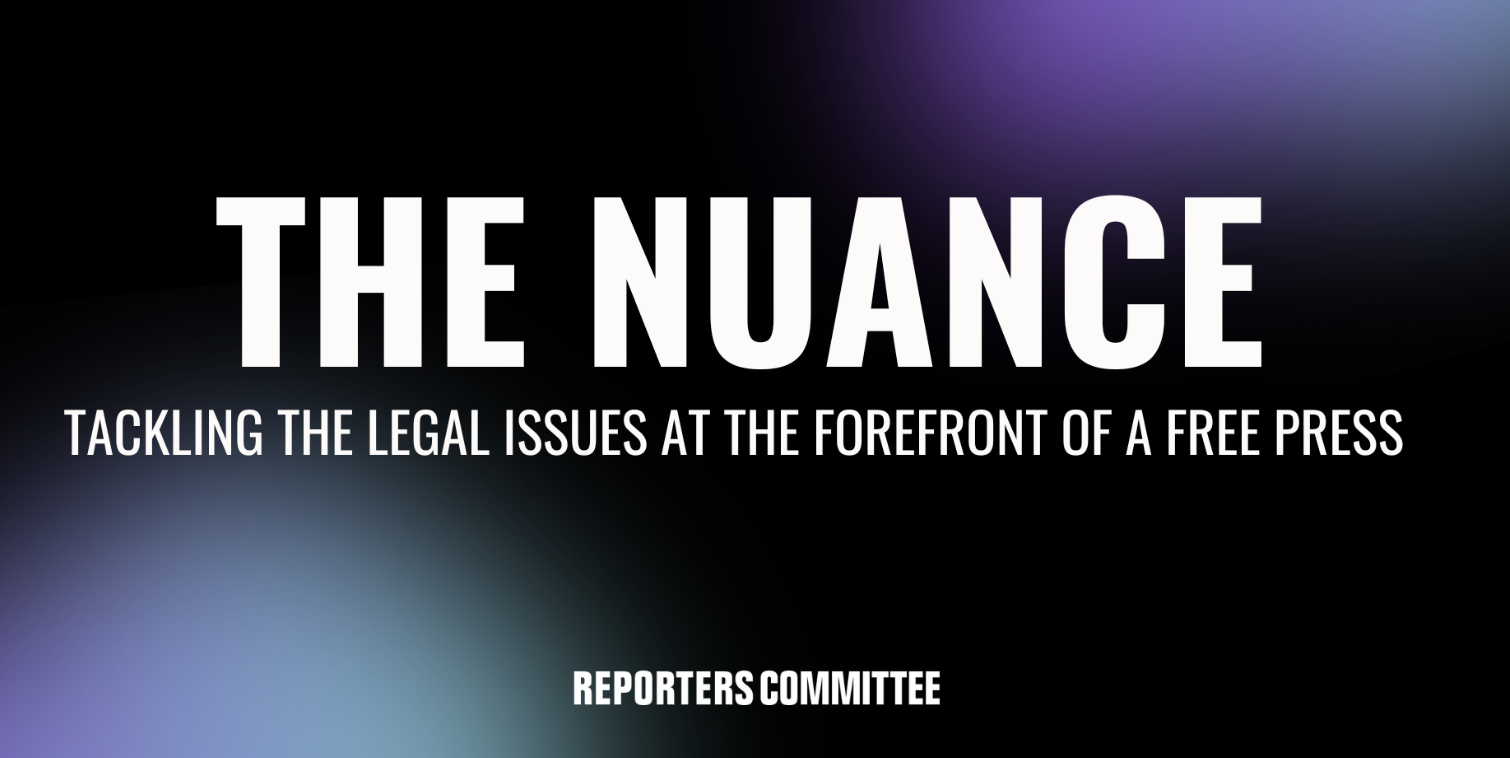A journalist in Ohio faces wiretapping charges
Photo Credits: Reporters Committee for Freedom of the Press
Several weeks ago, Ohio journalist Derek Myers was criminally charged with wiretapping for posting an audio recording of public court proceedings. Prosecutions like these are rare and pose a tremendous threat to the freedom of the press.
First, a bit of background on this case. George Wagner IV is currently on trial for murder, in connection with the 2016 killings of eight members of the Rhoden family in Pike County, Ohio. The murder and trial have been covered extensively by local news outlets. It has been called the “largest homicide investigation in Ohio’s history.” The judge presiding over the trial allowed witnesses to opt out of being filmed by the media. Among those who opted out was Edward “Jake” Wagner, George’s brother, who pled guilty to all eight murders in April 2021. But his testimony was public to all who went to the courtroom in person to see the trial. An anonymous source recorded the brother’s testimony and sent it to the Scioto Valley Guardian, which published an excerpt on its website.
Myers, the Guardian’s editor-in-chief, now faces wiretapping charges for releasing the audio. His phone and laptop were seized pursuant to a search warrant, but as several other free press advocates have noted, that warrant appears to violate Ohio’s shield law and the federal Privacy Protection Act. Without equipment and fearing any new devices he brings to court will be seized too, Myers has stopped covering the trial.
This prosecution is flagrantly unconstitutional. In 2001, the U.S. Supreme Court held in Bartnicki v. Vopper that the First Amendment protects publishing illegally obtained information, at least when the publisher did not participate in the illegality. (Note that it is possible that the recording was not made illegally — Myers has said that the audio recording was captured by someone with authorization to have a phone in the courtroom.) Regardless, the law in this area is very clear. These charges fly in the face of Supreme Court precedent that is directly on point.
But even if the wiretapping charges are dropped or a court rejects them as unconstitutional, this incident could have a chilling effect on journalists. It might make them more hesitant to publish records they receive from confidential or anonymous sources. It could also make them wary of reporting on public court proceedings because of judicial restrictions like the ones in this case.
The incident also points to the need for uniform rules allowing cameras in courts. Giving each judge (or, as here, each witness) discretion to decide what devices can be used when goes against the longstanding principle of public access to court proceedings.
Sen. Chuck Grassley (R-Iowa) put it well in an op-ed on the power of the televised trial of former Minneapolis police officer Derek Chauvin, who was convicted of murdering George Floyd: “[C]ameras in this courtroom allowed the American people to watch every moment and dissect every syllable of testimony with their own eyes and ears,” he wrote. “It showed our system of justice at work and affirmed the independence of the judiciary as an impartial arbiter of the rule of law.”

